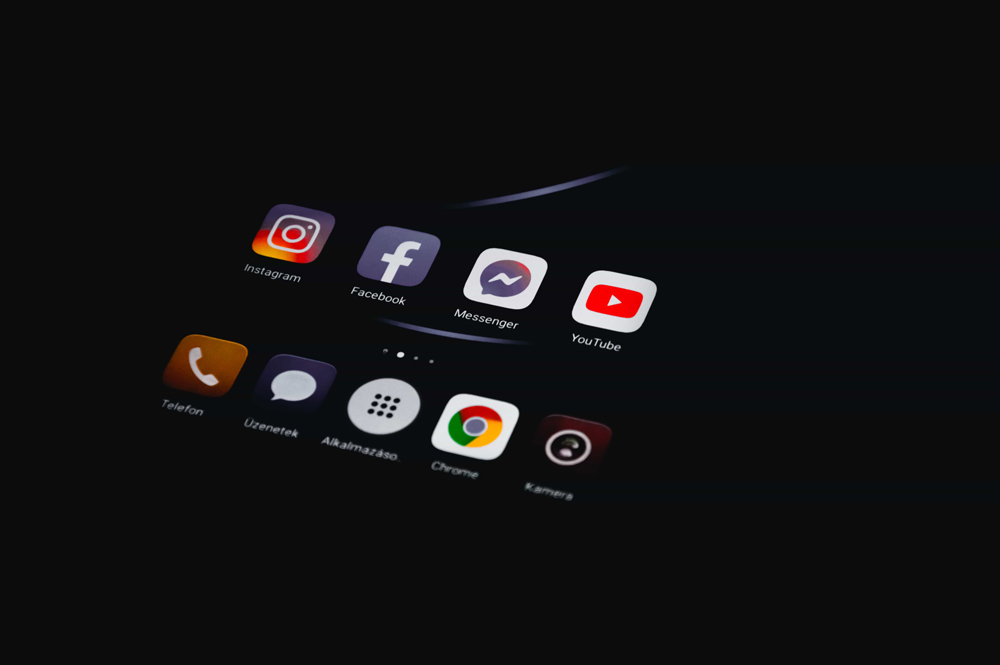Social media platforms have gradually become a main pillar for attracting website visitors and building an online presence for your brand. This is why social media matters for your website – it can generate vast amounts of website traffic and contribute to greater conversion rates.
In fact, social media marketing strategies are already a fundamental part of almost every website project and business plan.
Why Social Media Matters for Your Website
In the following paragraphs, you will read the 6 main reasons why social media matters for your website and why you need to be active on such platforms.
Reason 1: Social Media Branding Is a Strong Asset

The more prominent you become on social media, the higher the chances for better website traffic and conversions are.
To establish popularity and trust among social media users, you should make sure that your account not only gets noticed, but also evokes the right associations once someone sees your logo, name, or a social media publication.
In short, to establish brand authority, your activity on social media should be consistent, and the content you publish should be unique, relevant, and helpful for your audience. The better your content is, the higher the chances of increasing your brand reputation.
When working on your social media branding strategies, focus on:
- An overview of your account, what it is, and how it helps people.
- What are your brand values and message.
- A plan of what type of content you will be publishing for optimal branding impact.
- How you would engage with your social media audience.
- How to persuade people to go on your website.
So, share your story, promote your website content, engage with people, and reveal your unique character.
Reason 2: Engage Directly With Users

Social media platforms provide great opportunities for communication with other users.
You can use this direct line of communication to your advantage.
Ask questions, give answers, be responsive in private chats, and be active in the life of the social media platform.
By doing so, you will gradually build popularity and trustworthiness – people love brands that are responsive and keep in touch with their audience and followers.
In more detail, to establish trust with your audience and gain popularity on any given social media website, consider applying such approaches:
- Ask questions and engage with users who answered.
- Participate in the discussions below publications.
- Publish various types of questionnaires, so to engage people.
- Answer questions.
- Be active in private chats – if someone approaches you, make sure to answer quickly and effectively.
Such activity would showcase that you focus on establishing a positive relationship with your social media audience and can also build trust in your brand and therefore greater interest in your website and its content.
Reason 3: Social Media Provides New Audiences

Since social media platforms are among the most popular online places for a vast number of people, it is a good idea to establish your social media presence today and find the people who would be interested in your website content.
Whether you promote your personal blog, an e-commerce store, an enterprise website, or anything else, there’s always a chance that establishing a social media presence will help you get the attention of new audiences and even paying customers.
Also, the wider your audience, the greater the chances of/help/9-ways-monetizing-website/ are.
Reason 4: Deeper Metrics Analysis

Monitoring and analyzing key metrics is important for each successful marketing strategy. The more detailed the metrics, the better the results can be.
This is where social media can come in very handy.
Contemporary social media platforms feature advanced analytics tools that grant you an additional layer of your analytics arsenal and give you detailed information about your online audience.
You can use social media analytics to learn in detail about what kind of people comprise your audience, what are their interests, what are their needs and what would make them interested in your website content.
Such knowledge can help you create relevant content that best suits your audience – once you achieve this goal, your audience will become more engaged with your social media account and website content.
In short, social media analytics can help you to amass social media following and eventually greater website popularity and traffic.
Read also:
- What Are Web Analytics and Why Do They Matter?
- How to Set Up Google Analytics 4
- How to Navigate Google Analytics 4
Reason 5: Launch Audience-Specific Ads

Launching ads on social media can be very lucrative.
Usually, social media brands allow advertising on their platforms. What’s more, they provide you with a comprehensive suite of settings you can use to customize your ad campaigns in numerous ways.
This means that by using such versatile ad suites, you can create specific types of ads that fit perfectly a specific audience and will be displayed only to that particular audience.
Such an approach allows you to save funds and effort, and increase ads ROI, as you have the chance to focus only on prospect target audiences and greatly increase your chances of conversions.
At the same time, you will lower the chances of ads being ignored, as you will simply not focus on displaying your ads to audiences that you consider not interested in your brand and website content.
For optimal ad campaign delivery on social media, you can use the analytics tool each social media platform provides you with to further narrow down the target audience for your ad campaigns.
Reason 6: Find New Website Content Ideas

Monitoring how your audience behaves on social media can give you ideas about new useful content for your website.
For example, you can use social media platforms to monitor how users react to industry news, and what they talk about and maybe get an idea of what they need and what would become interesting to them.
Once you acquire such a notion, you can start adding new types of content to your website, improve the one that you already have, and promote the changes among social media users.
By doing so, you increase the chance to attract new site visitors via site content that is appealing to them and therefore increase your website popularity and usefulness, and why not conversion rates, should you wish to monetize your web pages.
Why Social Media Matters for Your Website – Conclusion

There are many reasons why social media matters for your website, and in this article you read about the 6 most important ones.
Read also:
- 6 Reasons Why Social Media Matters for Your Website
- How to Create a Social Media Marketing Strategy for Your Website
- Best Social Media Tools for Your Website
- 9 Ways to Start Monetizing Your Website
- What are Keywords
- How to Optimize Images for Web (7 Key Tips)
- How to Set Up Google Analytics 4
- What Are Web Analytics and Why Do They Matter?
- How to Navigate Google Analytics 4
- How to Get Started with Affiliate Marketing
